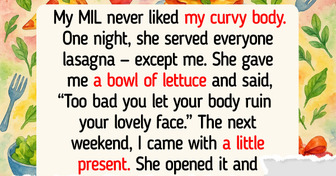You leapfrogged over honesty and went straight to cruelty. The way your family is reacting verifies that cruelty is your go to. Maybe a therapist could help you explore the self-hatred that you project onto other people.
I Never Expected My Daughter-in-Law to React This Way to My Weight Comment
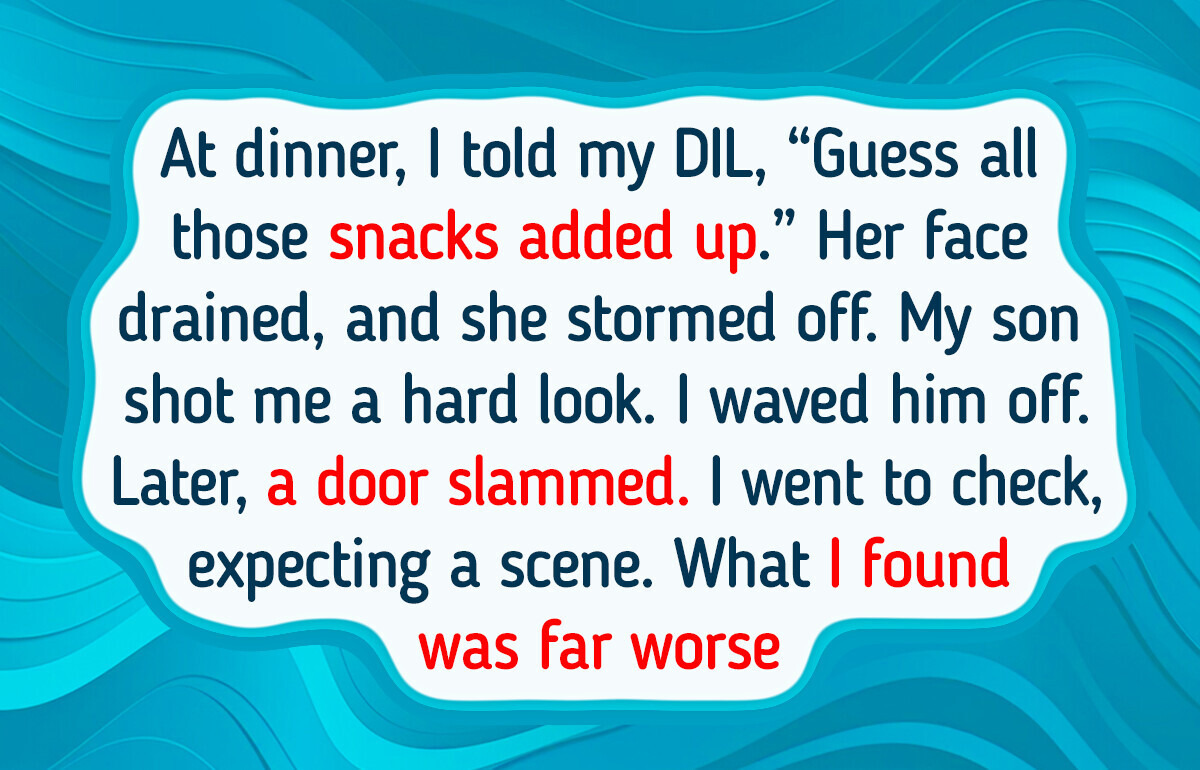
In an age of unfiltered communication, we received a letter that lays bare the devastating consequences of words carelessly wielded. What follows is a deeply personal account of a family teetering on the brink of irreparable damage — a stark reminder that the line between honesty and cruelty is razor-thin.
Here is Frances’s Letter:

I (59F) have always been very direct with my family. My son Mark (35M) and his wife Sarah (32F) have been married for five years, and we’ve never had a great relationship. Sarah is sensitive, and I believe in telling it like it is.
At dinner, I told my DIL, “Looks like you’ve been indulging! Guess all those snacks added up.” Her face drained, and she stormed off. My son shot me a hard look. I waved him off. Later, a door slammed. I went to check, expecting a scene. What I found was far worse.
Sarah was crying hysterically, surrounded by scattered clothes and torn photographs. When I asked what was happening, she screamed at me that this was the final straw. Apparently, she’s been struggling with body image issues and depression for months, and my comment pushed her over the edge.

Mark came in and told me to leave. He said I’ve been toxic for years, always criticizing his wife’s appearance, career choices, and parenting. He dropped a bombshell: Sarah had been considering therapy for an eating disorder, and my comment could completely derail her progress.
To make matters worse, they’re now talking about moving away and limiting my contact with their future children. My husband thinks I’ve gone too far this time and is siding with Mark and Sarah.
I genuinely thought I was just being honest. Isn’t that what mothers are supposed to do? Am I in the wrong?
The Illusion of Honesty

Honesty is not a weapon to wound but a bridge to understanding. Your belief that being “direct” is synonymous with being helpful is fundamentally flawed. When you commented on Sarah’s weight, you did not offer constructive feedback; you delivered a crushing blow to someone already struggling with profound personal challenges. Your words were not honest — they were cruel and calculated to inflict maximum emotional damage. Words have power, and in this moment, you wielded that power with devastating consequences.
The Hidden Battles We Cannot See

Sarah’s reaction reveals a depth of pain that extends far beyond a single comment about weight. Her scattered clothes and torn photographs paint a picture of someone fighting intense internal battles. Her struggle with body image and depression is not a weakness but a courageous journey of self-acceptance. Your comment did not just hurt her feelings; it potentially undermined months of potential healing and personal growth. Professional therapists spend years learning how to provide supportive, non-judgmental communication — a skill that requires far more nuance than simply “telling it like it is.”
The Cost of Toxic Communication
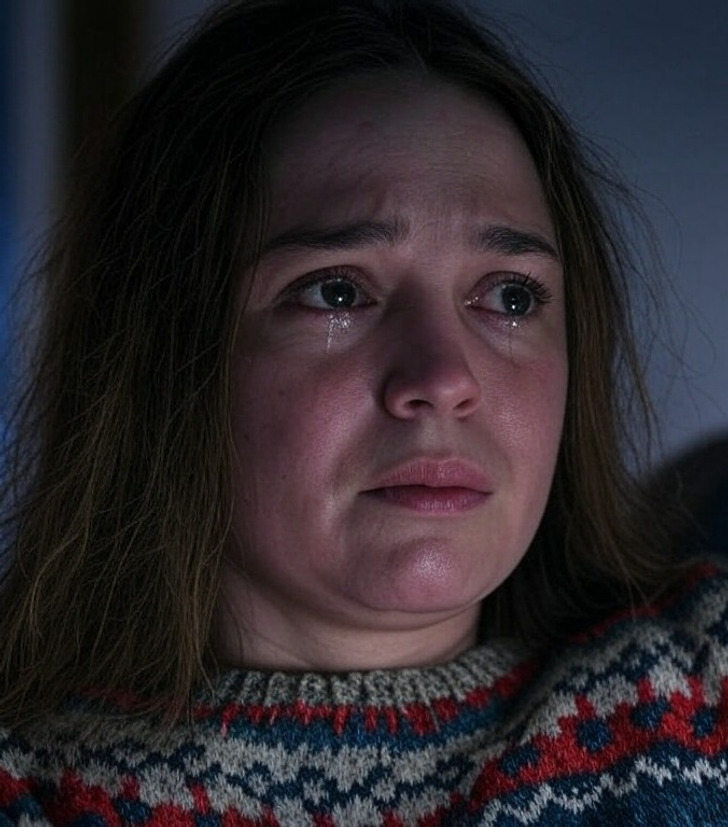
Your son Mark’s response speaks volumes about the long-term damage of persistent criticism. Years of undermining comments have eroded the trust and love that should be the foundation of family relationships. By consistently targeting Sarah’s appearance, career, and parenting, you have created an environment of constant judgment and emotional insecurity. The threat of limiting contact with future grandchildren is not a punishment but a protective measure to shield a vulnerable family unit from continued emotional harm.
Redefining Maternal Love

True maternal love is not about being right; it’s about being supportive, understanding and creating a safe emotional space for your children. Love means listening more than speaking, understanding more than judging. Your husband’s support of Mark and Sarah indicates that even those closest to you recognize the destructive nature of your communication style. A mother’s role is to nurture, support, and lift up her children — not to tear them down with constant criticism.
A Path to Redemption

Redemption is possible, but it requires genuine self-reflection, sincere apologies, and a commitment to fundamental change. This means seeking to understand Sarah’s struggles, acknowledging the pain you’ve caused, and demonstrating true empathy. Professional counseling could provide valuable tools for rebuilding the trust you’ve systematically dismantled over years of harmful interactions.
Frances, this is not about assigning blame but about recognizing the profound impact of our words. Compassion is the truest form of honesty — and it is a lesson we hope you will learn before it’s too late to repair the delicate threads of your family’s relationship.
Coming next: check out the story of the mother-in-law who refused to babysit her grandkids for free.
Comments
Related Reads
18 Times Family Members Were the Real Villains in the Story

15 People Reveal the Exact Moment They Knew Their Friendship Was Over

15 Vacations That Turned Into Stories No One Believed

I’ve Been Giving My Husband Money for Years — but the Harsh Truth Left Me Speechless

10+ Star Moms and Their Daughters Who Prove Genetics Always Win
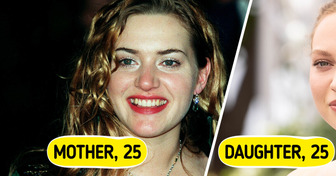
15 People with Unique Body Traits That Caught Us Off Guard

Jenna Ortega Broke Silence on Her Love Life, Nobody Expected That Truth

My MIL Got Caught Snooping in My Closet — I Couldn’t Believe My Fiancé’s Reaction
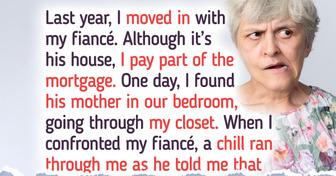
We Reimagined 20th-Century Icons in Nowadays Style, Some Results Are Truly Striking

My Husband Invited His Son’s Girlfriend on Our Family Trip and Not My Daughter

Prince Harry’s Secret Hollywood Love Story You’ve Never Heard Of

MY MIL Humiliated Me But Her Karma Arrived Girft-Wrapped
